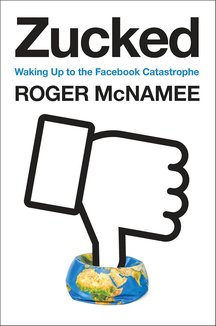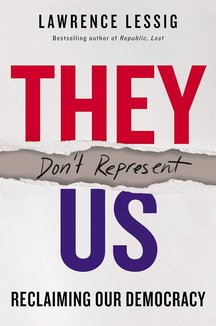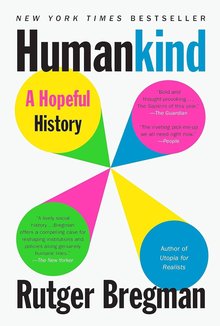Recommended Books

Zucked: Waking Up to the Facebook Catastrophe
Author:
Roger McNamee
ISBN 13:
978-0525561354
The New York Times bestseller about a noted tech venture capitalist, early mentor to Mark Zuckerberg, and Facebook investor, who wakes up to the serious damage Facebook is doing to our society - and sets out to try to stop it. If you had told Roger McNamee even three years ago that he would soon be devoting himself to stopping Facebook from destroying our democracy, he would have howled with laughter. He had mentored many tech leaders in his illustrious career as an investor, but few things had made him prouder, or been better for his fund's bottom line, than his early service to Mark Zuckerberg. Still a large shareholder in Facebook, he had every good reason to stay on the bright side. Until he simply couldn't. ZUCKED is McNamee's intimate reckoning with the catastrophic failure of the head of one of the world's most powerful companies to face up to the damage he is doing. It's a story that begins with a series of rude awakenings. First there is the author's dawning realization that the platform is being manipulated by some very bad actors. Then there is the even more unsettling realization that Zuckerberg and Sheryl Sandberg are unable or unwilling to share his concerns, polite as they may be to his face. And then comes the election of Donald Trump, and the emergence of one horrific piece of news after another about the malign ends to which the Facebook platform has been put. To McNamee's shock, even still Facebook's leaders duck and dissemble, viewing the matter as a public relations problem. Now thoroughly alienated, McNamee digs into the issue, and fortuitously meets up with some fellow travelers who share his concern, and help him sharpen its focus. Soon he and a dream team of Silicon Valley technologists are charging into the fray, to raise consciousness about the existential threat of Facebook, and the persuasion architecture of the attention economy more broadly -- to our public health and to our political order. Zucked is both an enthralling personal narrative and a masterful explication of the forces that have conspired to place us all on the horns of this dilemma. This is the story of a company and its leadership, but it's also a larger tale of a business sector unmoored from normal constraints, just at a moment of political and cultural crisis, the worst possible time to be given new tools for summoning the darker angels of our nature and whipping them into a frenzy. Like Jimmy Stewart in Rear Window , Roger McNamee happened to be in the right place to witness a crime, and it took him some time to make sense of what he was seeing and what we ought to do about it. The result of that effort is a wise, hard-hitting, and urgently necessary account that crystallizes the issue definitively for the rest of us.

They Don't Represent Us: Reclaiming Our Democracy
Author:
Lawrence Lessig
ISBN 13:
978-0062945716
“This urgent book offers not only a clear-eyed explanation of the forces that broke our politics, but a thoughtful and, yes, patriotic vision of how we create a government that’s truly by and for the people.”―DAVID DALEY, bestselling author of Ratf**ked and Unrigged In the vein of On Tyranny and How Democracies Die , the bestselling author of Republic, Lost argues with insight and urgency that our democracy no longer represents us and shows that reform is both necessary and possible. America’s democracy is in crisis. Along many dimensions, a single flaw―unrepresentativeness―has detached our government from the people. And as a people, our fractured partisanship and ignorance on critical issues drive our leaders to stake out ever more extreme positions. In They Don’t Represent Us , Harvard law professor Lawrence Lessig charts the way in which the fundamental institutions of our democracy, including our media, respond to narrow interests rather than to the needs and wishes of the nation’s citizenry. But the blame does not only lie with “them”―Washington’s politicians and power brokers, Lessig argues. The problem is also “us.” “We the people” are increasingly uninformed about the issues, while ubiquitous political polling exacerbates the problem, reflecting and normalizing our ignorance and feeding it back into the system as representative of our will. What we need, Lessig contends, is a series of reforms, from governmental institutions to the public itself, including: A move immediately to public campaign funding, leading to more representative candidates A reformed Electoral College, that gives the President a reason to represent America as a whole A federal standard to end partisan gerrymandering in the states A radically reformed Senate A federal penalty on states that don’t secure to their people an equal freedom to vote Institutions that empower the people to speak in an informed and deliberative way A soul-searching and incisive examination of our failing political culture, this nonpartisan call to arms speaks to every citizen, offering a far-reaching platform for reform that could save our democracy and make it work for all of us.

Humankind: A Hopeful History
Authors:
Rutger Bregman
,
Erica Moore
,
Elizabeth Manton
ISBN 13:
978-0316418522
AN INSTANT NEW YORK TIMES BESTSELLER The “lively” ( The New Yorker) , “convincing” ( Forbes ), and “riveting pick-me-up we all need right now” ( People ) that proves humanity thrives in a crisis and that our innate kindness and cooperation have been the greatest factors in our long-term success as a species. If there is one belief that has united the left and the right, psychologists and philosophers, ancient thinkers and modern ones, it is the tacit assumption that humans are bad. It's a notion that drives newspaper headlines and guides the laws that shape our lives. From Machiavelli to Hobbes, Freud to Pinker, the roots of this belief have sunk deep into Western thought. Human beings, we're taught, are by nature selfish and governed primarily by self-interest. But what if it isn't true? International bestseller Rutger Bregman provides new perspective on the past 200,000 years of human history, setting out to prove that we are hardwired for kindness, geared toward cooperation rather than competition, and more inclined to trust rather than distrust one another. In fact this instinct has a firm evolutionary basis going back to the beginning of Homo sapiens . From the real-life Lord of the Flies to the solidarity in the aftermath of the Blitz, the hidden flaws in the Stanford prison experiment to the true story of twin brothers on opposite sides who helped Mandela end apartheid, Bregman shows us that believing in human generosity and collaboration isn't merely optimistic—it's realistic. Moreover, it has huge implications for how society functions. When we think the worst of people, it brings out the worst in our politics and economics. But if we believe in the reality of humanity's kindness and altruism, it will form the foundation for achieving true change in society, a case that Bregman makes convincingly with his signature wit, refreshing frankness, and memorable storytelling. "The Sapiens of 2020." — The Guardian " Humankind made me see humanity from a fresh perspective." —Yuval Noah Harari, author of the #1 bestseller Sapiens Longlisted for the 2021 Andrew Carnegie Medal for Excellence in Nonfiction One of the Washington Post 's 50 Notable Nonfiction Works in 2020